
Women’s History Month offers the opportunity to celebrate the many ways that women leaders have contributed to shaping our world. This month, WLP invites you to explore and share the stories of activists from around across the globe who have dedicated their lives to advancing gender equality and safeguarding human rights.
This blog series introduces you to a selection of the gender equality activists and scholars featured in WLP’s oral history archives. Their experiences provide insights into feminist movements from around the world as well as learnings and inspiration for the next generations of future leaders. Check out Part One here and Part Two here.
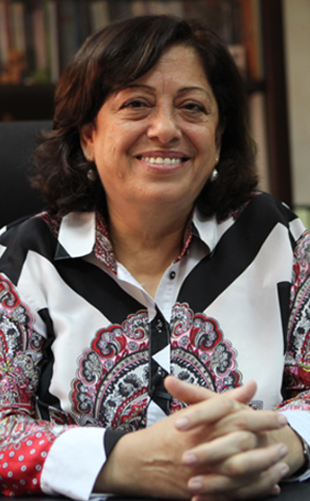
Asma Khader (Jordan)
In Memory (1952-2021)
Asma Khader was Jordan’s foremost human rights lawyer. She founded and ran Solidarity is Global Jordan (SIGI/J), served in the Jordanian senate, and was Jordan’s Minister of Culture. In her oral history Khader recounts growing up in a political family in Palestine and becoming a refugee in Jordan. She describes her legal work with women in Palestine and Jordan, and speaks on issues including honor killings, women’s education, and family reform under Muslim laws.
Listen to the full oral history here.
"But also it helps that you make the voices of women from the very local level heard at a very international level and vice versa. You bring all the international lessons and frameworks and new development internationally to the very local. And as you see our facilitators and field coordinators are coming from every city. So when we meet with them, we inform them what happened, we give them the manuals, and they take it to their own local communities and I think this is what happens in every country where the partnership exists." - Asma Khader on WLP's work
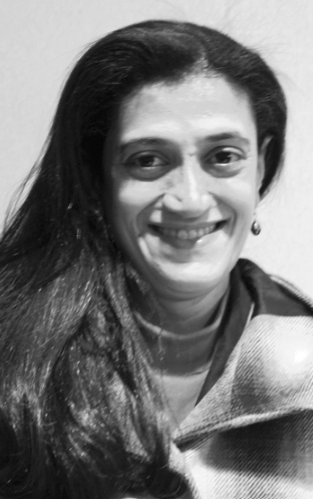
Enas al-Shafie (Egypt)
Enas al-Shafie is a feminist author and archaeologist, currently Executive Director of the Forum for Women in Development (FWID). In her oral history al-Shafie describes her youth straddling religion and a communist family, leading to her work on women’s issues and social justice. She speaks on issues such as bringing men and boys into feminist movements, common people’s movements, and secular versus religious human rights.
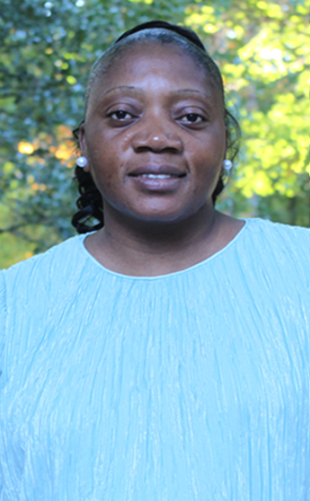
Aziza Abemba (DRC/Zimbabwe)
Aziza Abemba is an educator, activist, and Executive Director of Women’s Self-Promotion Movement (WSPM) in Zimbabwe, which provides training and education for Zimbabwean women and girls and for refugee women from African countries. In her oral history Abemba describes the complexities of growing up in a polygamist family in the DRC and fleeing to Zimbabwe during the war. She speaks on issues including the intersection of religion and gender, economic empowerment programs, and land reform in Zimbabwe.
Listen to the full oral history here.
"We managed to translate the 'Leading to Choices' [training manual] into Swahili. Then we used that manual, it was very effective in the community, especially refugees, because they came up at the end of the day, to realize that there are leadership potentials in them, they could do something or other to bring about change in their lives, especially starting with family life." - Aziza Abemba on using WLP manual in local communities
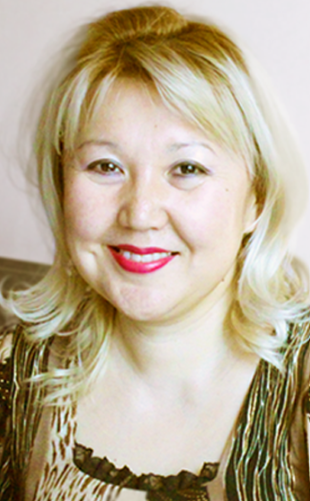
Gulnara Karakulova (Kazakhstan)
Gulnara Karakulova is Founder and Director of the Shymkent Women's Resource Centre Kazakhstan (SWRC), and works with marginalized groups for greater inclusion in decision-making processes and to improve their social status and social participation. In her oral history Karakulova recounts growing up between Kazakhstan and Moscow in an intellectual family, and her introduction to the women’s movement in university. She speaks on issues including women’s representation in the media, education models, and the impact of religion on women’s movements.
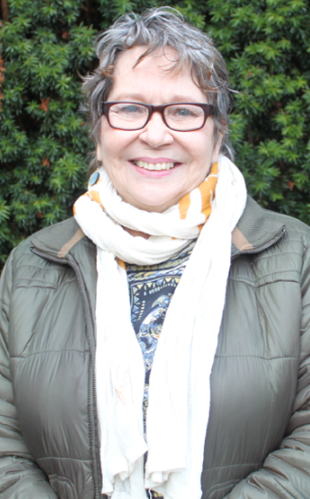
Malena de Montis (Nicaragua)
Malena de Montis is a feminist sociologist, popular educator, and activist. She is the founder of the Center for Democratic Participation and Development, CENZONTLE and the Women's Development Fund (FODEM)/CENZONTLE, supporting the economic and political empowerment of women with scarce resources. In her oral history de Montis speaks on her time as a revolutionary leader within the Sandinista Front in Nicaragua through the early 1980s where she held a number of important roles in the government and civil organizations.
Listen to the full oral history here.
"What I have learned in my lifetime is that power relations reproduce all over, regardless of class, religion, etc. The domination, the creation of subordinated situations, regardless of sex, age, nationality is reproduced, is still being reproduced all over the world." - Malena de Montis on power relations
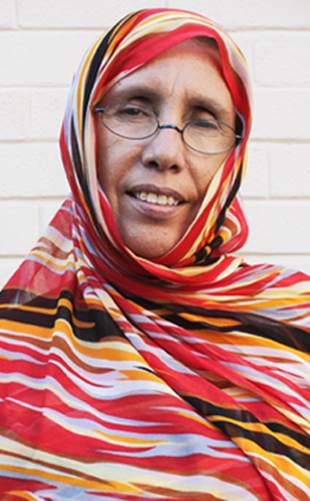
Aminetou Ely (Mint El-Moctar) (Mauritania)
Aminetou Ely is the President of the Association des Femmes Chefs de Famille (AFCF), and was shortlisted for the Nobel Peace prize in 2015, making her the first Mauritanian ever considered for the distinction. In her oral history, Ely describes her childhood spent resisting gendered expectations placed on girls in Mauritania including childhood marriage and force-feeding, and how that journey led her to continued feminist activism despite imprisonment and violence. She speaks on issues including women’s political participation, slavery, GBV, and female literacy.
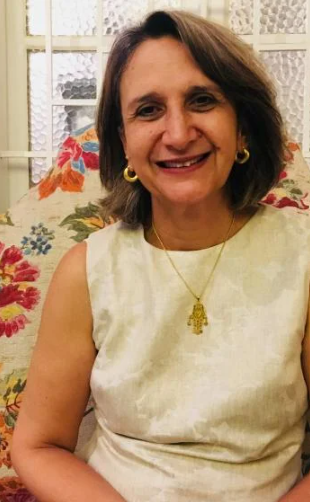
Hoda Elsadda (Egypt)
Hoda Elsadda is a Professor of English and Comparative Literature at Cairo University and an activist for women’s rights. In 1995, she co-founded and is currently Chairperson of the Board of Governance of the Women and Memory Forum. In her oral history Elsadda describes her introduction to feminism through literature, which led her to a PhD and a professorship at Cairo University. She speaks on issues including family law reform, gender-sensitive history, and academic activism.
Listen to the full oral history here.
"It made it more pressing, this idea of the production of alternative feminist knowledge. One of the things I took away from the campaign for the marriage contract, where we actually went around to very different governments and talking to people in grassroots organizations about the marriage contract, is that people actually change their minds once they have information. A lot of the prejudice against women is really based on misinformation. So information is really important, knowledge is power, as we say...but you also have to have the authority to make this information influential. So it's a combination between the power of knowledge and the power of authority." - Hoda Elsadda on the importance of information
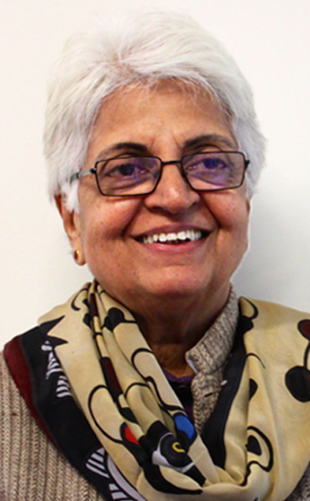
Vasanth Kannabiran (India)
Vasanth Kannabiran is a lawyer and civil and democratic rights activist. A founding member of one of the earliest feminist collectives in India, Stree Shakti Sangathana, Kannabiran has been an advisor to several government initiatives on bringing gender into governance. In her oral history she recounts growing up in a communist revolutionary family, and becoming an activist despite witnessing constant arrests and oppression of her family and friends. She speaks on issues including feminist collectives, women’s bodily autonomy, and her perseverance as a feminist writer despite often violent persecution.
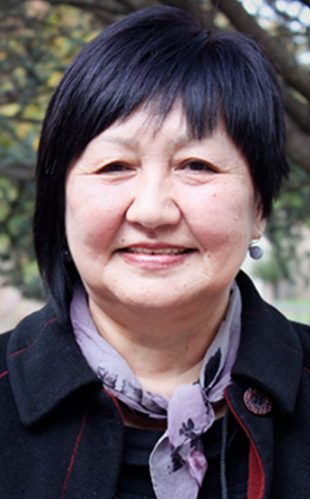
Tolekan Ismailova (Kyrgyzstan)
Tolekan Ismailova is a human rights defender and Director of Bir Duino Kyrgyzstan. She founded the NGO Forum of Kyrgyzstan and the Coalition for Democracy and Civil Society. In her oral history Ismailova recounts her nontraditional upbringing and her path to being a human rights defender including her own arrest and her husband’s murder. She speaks on issues including cultural memory and preservation under authoritarian regimes, government corruption, civil society organizing, and women’s migrant rights.
Listen to the full oral history here.
"We organized a big peaceful demonstration against the falsification of the election in 2000 and I was surprised that when Chairman of [the] Election Commission came to meet these local people, because local people came from mountains and said, 'Why you falsify the election?'...He [was] surprised and said, 'Oh my God. You talk about this Article?' And it was very great, real democratic movement, which violated by Akayev’s regime and a lot of people go to prison and our demonstrations was crushed…but people come back, stand up, not afraid, it’s Kyrgyzstan picture." - Tolekan Ismailova on peace demonstration as democratic movement
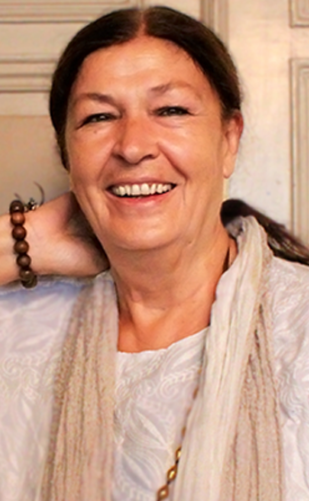
Şengül Akçar (Turkey)
Şengül Akçar is the founder and current board member of the Foundation for the Support of Women’s Work (KEDV), which brings grassroots women’s issues and contributions to the fore. In her oral history Akçar describes her childhood and first forays into feminist movement building. She speaks on her work with KEDV on issues including women’s economic empowerment and labor rights, women’s co-operatives, and the role of NGOs in government and policy.
Listen to the full oral history here.
"So we started organizing formats for the grassroots women, we ended up working with the women, discussing, meetings, workshops…small meetings, big meetings, national meetings with all these women. And then we ended up with the cooperative. That it could be good for two reasons. One is, it gives you economic initiatives under the co-operative, and also it’s participatory and a more democratic format." - Şengül Akçar on founding of women's cooperative
Related Content
Voices from the Feminist Movement: Exploring Women's Oral Histories for Women's History Month (Part Two)
In the month of March people around the world celebrate the many ways that women leaders have contributed to shaping our world. This women’s history month we invite you to explore and share the stories of activists who have dedicated their lives to advancing the rights of women and girls and safeguarding human rights.
Voices from the Feminist Movement: Exploring Women's Oral Histories for Women's History Month (Part One)
In the month of March people around the world celebrate the many ways that women leaders have contributed to shaping our world. This women’s history month we invite you to explore and share the stories of activists who have dedicated their lives to advancing the rights of women and girls and safeguarding human rights.